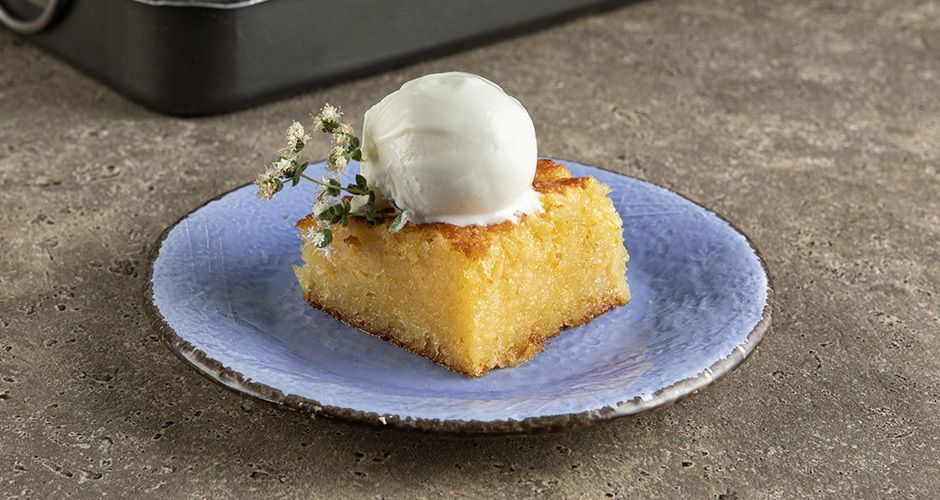By Georgene Dilernia
Portokalopita is a delicious, differently styled cake that is a must-try for anyone who isn’t afraid of fruit dessert! Portokalopita is a mouth-watering dessert with the aromas and blends of fresh oranges and cinnamon. The Greek cake is popular to serve with a spoon full of vanilla ice-cream on top.
Take a look below to see how you can bake this pleasant treat!
INGREDIENTS
For the Portokalopita
- 200g yogurt
- 300ml corn oil
- 300ml sugar
- 300ml orange juice
- 20g baking powers
- Zest of 1½ oranges
- 1 tsp vanilla extract
- 440-450g phyllo dough
For the Syrup
- 400ml water
- 400ml sugar
- Zest of 1 orange
- 1 cinnamon stick (optional)
METHOD
- Unwrap the phyllo dough from the plastic sleeve; place the sheets on a large surface and leave at room temperature for 20 minutes, in order to dry well. Alternatively, spread a few on a large baking tray and bake at 100°c, until dry; repeat with the rest.
- To prepare this Greek orange cake, start first by preparing the syrup. Pour the water, sugar, orange zest and a cinnamon stick into a pot and bring to the boil. Simmer for 5-10 minutes, until the sugar is dissolved and the syrup has thickened. Leave aside to cool.
- Prepare the mixture for the orange cake. Pour the corn oil into a large bowl, add the sugar and whisk. Add the yogurt, orange juice, orange zest and vanilla extract and whisk well until the ingredients combine and the mixture is smooth. Add the baking powder and blend lightly.
- Tear the sheets of the phyllo dough into small pieces using your hands and add into the mixture; whisk well.
- Using a cooking brush, oil the bottom and the sides of a baking tray (approx.20x30cm / 8×12 inch) and pour in the mixture. Bake in a preheated oven at 170-180°c for 40-50 minutes until, nicely coloured and cooked through. Check if it is ready, by making a hole with a knife.
- To finish the orange cake, ladle slowly the cold syrup over the hot cake. Allow each ladle of syrup to be absorbed before ladling again.
- Allow time for the syrup to be absorbed and put in the refrigerator. Greek orange cake is ideally served cold, not hot, so that it does not crumble.
Kali Oreski!
